- Home
- Melody Carlson
Notes from a Spinning Planet—Ireland Page 2
Notes from a Spinning Planet—Ireland Read online
Page 2
At the moment, Ryan and I are sitting in this big, sparse holding area of the Shannon airport. We actually landed in Dublin first, and I thought that was the end of our journey. But we stayed on the plane, and Sid explained that we still had one more short flight. Finally, about an hour and a half later, we got off the plane. I restrained myself from falling down and kissing the earth, but seriously, it felt so good to have my feet on solid ground again. I can’t even begin to think what I’ll do when its time to go home.
We had just started to go through customs when Sid was approached by this guy in a uniform. He told us she’d be right back, but it’s been nearly an hour now, and I’m starting to get worried. What if they kidnapped her? Maybe my mom was right to be so cautious and worried about our whereabouts during this trip. I’m tempted to call Mom on my cell phone right now—to tell her we’re barely here and Aunt Sid has gone missing.
“Your phone is just for emergencies,” Dad sternly told me before I left this morning—or was that yesterday morning? Who knows? But he was pretty worried that international calls would break the bank. So I resist the urge.
“Shouldn’t Sid be back by now?” I ask Ryan, pretending not to be nervous.
He just shrugs like it’s no big deal, but I think I see a trace of worry in his eyes too.
“Who’s she talking to anyway?”
“Just some official dude.”
“I know it’s some official dude,” I say in a less-than-patient tone. “I saw the uniform. But who was it? And why did he want Sid?”
He shrugs again, and maybe it’s my general fatigue, but his nonchalance is really starting to irritate me. Besides that, I’m hungry. And, unlike the American airport we departed from like, a hundred years ago, this part of the terminal doesn’t seem to have any food kiosks or restaurants. There are a couple of vending machines, but since we don’t have any euros yet, we’re out of luck.
“Do you think we’re really in Ireland?” I ask Ryan. He gives me this kind of duh look. Before I can say anything else stupid, I see Sid hurrying back toward us.
“Everything okay?” I ask as I get up to meet her.
“Yeah.” She nods. “Just had to answer some questions.”
Questions?
“I guess my name was on some kind of list, and they wanted to find out—”
“What kind of list?” I ask.
Sid is already collecting her baggage. “It’s just old stuff that has to do with politics and when I was here before…not terribly important,” she says. “Let’s get you guys through customs now. We’re burning daylight here.”
So Ryan and I trudge along after her. I partially carry and partially drag my stuff toward the customs counter as I wonder what the showers are like in Ireland. I’m in serious need.
To my dismay, it seems the customs guys are really interested in the three of us. They make us open all our bags. And then, wearing these vinyl gloves, they search through everything, including my underwear, which I find just a tad bit embarrassing since I’ve never been one to buy the really fashionable stuff like my friend Katie goes for. But what’s up with this anyway? Like who do they think we are? International smugglers or spies? Drug transporters? They finally seem satisfied that we’re not any of those things, and after I push my stuff back into the bag and barely get the zipper closed, we head over to another counter to exchange some American money for euros, which really seems like a ripoff since they take far more dollars than I get back. I get about fifteen in exchange for a twenty.
“What was that all about?” I ask my aunt as we wait for Ryan. “I mean, the customs guys. It’s like they thought we were serious trouble or something.”
She just smiled. “It has to do with old things, Maddie. I’ll explain later.”
Okay, this makes me really curious. Like what was my aunt involved in here in Ireland? What makes her the kind of person who would be detained in customs? A woman of international interest? But I quickly forget these questions as we pile into a shuttle bus, and it speeds down the wrong side of the road. It drops us at the rental-car place just outside of the airport, and it takes about thirty minutes for Sid to fill out the paperwork there so she can rent this funny little vanlike car with the steering wheel on the right. Sure feels like the wrong side to me.
“Do you know how to drive this thing?” I ask her as we pile our stuff into the hatchback.
“It’s been a while,” she admits. “But it’s probably like riding a bike.”
Ryan offers to help read the map, and I opt for the backseat, thinking maybe I’ll get to nap as Sid drives us to this place she’s been raving about. Apparently it will take us a few hours to get there, which means I might actually catch some z’s. However, when my aunt nearly collides head-on with a large delivery truck, I quickly discover that napping will be a challenge.
“The other way,” Ryan yells.
We’re driving in some kind of a circle thing, and the cars are all honking, and she’s backing up and actually swearing. I don’t think I’ve ever heard my aunt use bad language before, and it makes me even more worried.
“I’m sorry,” she says when she finally gets back into the circle, going the right way now. I lean over the back of the front seat and just shake my head as she drives around this circle a couple of times.
“Where are we going?” I ask.
“I missed the exit on the roundabout,” she says.
“That one!” yells Ryan.
“Right.”
“No, left!”
“Yeah, yeah,” she says as she turns left. “I know, I know.”
And that’s how it goes until we are finally out of the city. But after this the roads, which I thought were rather narrow before, get really, really narrow. I mean, like about the width of a single-car-driveway narrow, so narrow that someone has to pull over, practically off the road, when there’s two-way traffic, which fortunately doesn’t happen much.
I find that I am gripping the back of Ryan’s seat and practically holding my breath as we hurtle down the wrong side of the road at what looks like more than eighty-five kilometers on the speedometer! How does that translate into miles? Worse than this is that other vehicles, which seem to be going even faster, are heading straight toward us, like its inevitable we will soon end up in a head-on crash, and I’m certain this tinny little car will not hold up. I wonder if it’s ever been crash tested. Does it even have airbags? I think I might actually pass out.
“Where are we going?” I finally manage to gasp after Sid narrowly misses a sports car.
“We’re heading up to Galway,” Sid tells me.
“How long will that take?” I ask, feeling more and more like the brat in the backseat who keeps whining, “Are we there yet?” But I’m desperate.
“Looks like about half an hour,” Ryan informs me as he peers at the map.
“We’ll stop for a bite to eat there,” Sid says. “Then it’s on to Connemara.”
“What’s that?”
“Our final destination…well, at least for a few days.”
“Oh.” Okay, I really want to ask how much longer it will take to get to Connemara, but I know I already sound like a pest. Better to just shut up and write in my journal. Good thing I don’t get carsick anymore.
Before long the traffic gets thicker, and it appears we’re getting close to Galway. Or so I assume. I don’t want to ask, don’t want to sound as lame as I feel.
Fortunately, Sid seems to know where she’s going as she turns into the next roundabout, and before long she is parking along a city street. “Here we are,” she announces happily. “Now let’s see if Fionna’s is still here.”
“Who’s Fionna?” I ask as I climb from the car and enjoy a good stretch. I am so stiff from sitting and sitting and sitting that I’m not even sure I can walk very well.
“It’s a restaurant where Danielle and I ate a couple of times, back in the dark ages when we were just kids.”
I recall hearing about how my aunt and Dan
ielle spent a year in Ireland when they were in college, but I’ve never really asked about it before. Never really thought about it.
“So what brought you guys over here in the first place?” I ask as we walk along a cobblestone sidewalk that looks really old. In fact, as I look at the buildings, I realize that everything here looks pretty old. We’re walking down this alleylike street with colorful flags and banners flapping in the breeze, and there are street vendors everywhere, as well as musicians, and I can smell something really delicious cooking. It feels almost like a carnival, and I suddenly am totally invigorated, almost forgetting how long I’ve been sleep deprived and how stiff I am. I hear a street vendor calling out in a thick Irish accent, and it hits me—I really am in a different country! I am halfway around the planet. I am in Ireland!
“Danielle and I came here on a goodwill mission,” my aunt begins, then stops suddenly, pointing across the street. “Look, it’s still there! Fionna’s!”
We hurry across the street and get seated at a small bistro-style table outside, and Sid begins telling us how she and Danielle came over here when Ireland was a dangerous place, during what she calls “the troubles.”
Three
I vaguely remember hearing about your trip to Ireland,” I tell Sid. “I mean, I know you spent some time here, but I just assumed it was for fun.”
She sort of laughs. “Well, parts of it were fun. I’ll admit that. But parts of it were truly sad. It was a difficult time. Danielle and I first became aware of what was happening in Northern Ireland when we took this political-science class together,” she begins. “Wed heard about the bombings, the senseless killings, all the hatred that seemed to be coming to a head between the Catholics and Protestants. It was in the news, but I suppose we hadn’t paid too much attention. Anyway, it was 1975, and we were about your age—”
“Huh?” This doesn’t make sense. Okay, I’m not that great at math, but 1975 sounds like a long time ago—like more than thirty years. “How old are you anyway, Aunt Sid?”
She laughs. “It’s no secret, Maddie.”
“She’s around fifty,” Ryan says bluntly. “Same age as my mom. Well, before she…you know…” Then he looks away, and I realize he’s still dealing with his mom’s death, and I wish I could say something to make it easier for him, but I have no idea what that would be. So I turn my attention back to my aunt, hopeful we’ll move our conversation on to a happier subject.
“No way do you look like you’re fifty!”
She smiles and pats my hand. “Like I said, Maddie, you keep this up, and I’ll keep you around. Turning fifty wasn’t exactly a piece of cake for me.”
“So you guys came over here like thirty years ago?” I try to absorb these two facts: (1) my aunt’s that old, and (2) she and Ryan’s mom were right here in 1975.
“Anyway, Danielle and I were both in our second year of college when we took that political-science class from a professor who had just returned from Northern Ireland. The stories he told the class just broke our hearts. He showed us slides—these heartbreaking black-and-white photos of Irish children growing up in Northern Ireland among such hatred and violence and hopelessness. So by the end of our sophomore year, when this same professor put up a poster about an opportunity to help out at a summer camp that needed volunteers, both Danielle and I signed right up.”
“Where was the camp located?” I ask.
“On an old estate about thirty miles out of Belfast. A family donated this gorgeous piece of property with the goal of uniting Protestant and Catholic children in a camplike atmosphere. It was called a peace camp. They hoped it would provide a means for kids to learn to accept their religious and political differences before they became too biased.”
“Cool idea,” I tell her. “Did it work?”
“It seemed to. I mean, the campers arrived with some obvious problems and prejudices, but after they started having fun and acting like regular kids, they seemed to almost forget their differences. At least while they were there. Who knows what happened after they went home.” She pauses as the waitress comes to take our order.
“Of course, those children are all grownups now,” she continues. “Probably in their thirties and forties.” She shakes her head and sighs as if this is hard to believe.
“I wonder how it affected their lives.”
“Well, that’s exactly why I’m here, Maddie. My assignment is to write a follow-up article about the peace-camp kids we worked with thirty years ago. I’ve contacted some former campers who agreed to interviews. And I’ve heard that one was actually involved in the Good Friday Agreement.”
“What’s that?” I ask as I set aside the menu.
“That’s when the IRA agreed to disarm,” Ryan informs me, “several years ago. It was a huge thing for Northern Ireland. A lot of people thought it wouldn’t work, and it was a little rough at first. But the bombings and shootings have really gone down since then—on both sides.”
I glance at him, curious as to how he knows so much about this. I mean, I don’t exactly live under a stone, and I do know that the IRA stands for the Irish Republican Army, and I think they formed to drive the British Protestants out of Ireland, or something to that effect.
“It really was a monumental step for unity in Ireland,” says Sid. “Of course, the Good Friday Agreement hasn’t solved all their problems, but it was a big shift toward peace.”
“I don’t like to sound ignorant,” I admit, “but I guess I don’t know that much about all of this. Like how it all started or why. Well, other than the fact that Catholics and Protestants seem to hate each other. But I don’t really get that. I mean, aren’t they both supposed to be Christians?”
“It’s pretty complicated,” says Sid. “And it goes back hundreds of years. In a nutshell, it has to do with Northern Ireland wanting independence from Britain, wanting to be reunited with the Republic of Ireland.”
“The reason the religious aspect is messy is because most of the Irish are Catholics, and most of the British are Protestants,” says Ryan. “And the history of Catholics and Protestants, particularly on this side of the globe, is that they don’t get along. So this whole Irish-independence thing starts to look like a religious war too.”
“Sort of like two cultures colliding, and neither one of them wants to accept the other,” continues Sid.
“Why don’t the British just go back to Britain?” I ask.
“That would sure make the Irish happy,” says Ryan.
Sid kind of laughs. “Yeah, if only it were that simple. But, unfortunately, it involves things like money and land and pride.”
“But it seems like the two Irelands should be reunited,” I protest, feeling sorry that the country has been divided like this. “It seems wrong that they’ve been split apart if they’re both really Irish.”
“Keep in mind that a lot of British people live in Northern Ireland,” explains Sid. “Some have been here for generations. They think of it as their home, and it’s not like they’re going to just pack up and leave.”
“Why can’t they stay but let Northern Ireland be reunited with the rest of Ireland?”
“That’s sort of like asking why the Native Americans can’t have North Dakota back,” says Ryan.
“Huh?”
“In other words, it’s complicated,” says Sid.
“Well, I don’t see why people can’t just get along,” I say as the waitress brings our drinks.
To my relief, Sid changes the subject by telling us a little more about where we’re going to be staying today.
“Connemara is one of the most untouched regions of Ireland,” she explains, sounding a bit like a travel brochure. “The town we’ll stay in is called Clifden, and it’s by the sea. Really pretty and quaint. I’ve booked us a bed-and-breakfast for three nights. It’s in one of the oldest buildings and in the center of town.”
“Sounds nice,” I say as I take a sip of what is supposed to be Coke, although I’m skeptical.
&n
bsp; “One of the men I need to interview tomorrow lives north of Clifden,” she continues. “I’m not sure how long it will take, but I figure you two can kick around town while I get my interview. Maybe you can rent some bikes and see the countryside, or take a ferry tour to one of the islands, or just hang out and do some shopping.”
“Or maybe take a nice long nap.” I yawn as I look down the narrow street we’re sitting beside, and I’m struck once again by the fact I am really in a foreign country. “These old buildings are so cool,” I say as I study the stone structure directly across from us. The large double doors are painted bright blue, as are the flower boxes, which overflow with red geraniums and lots of other bright blooms that hang down several feet.
I point to the carved sign over the door that reads Céad Míle Fáilte. “What do you think that means?” I ask my aunt.
“As I recall, it’s ‘welcome.’”
“That’s a pub,” Ryan informs me.
“A pub?” I ask. “It looks more like a hotel to me.”
“He’s right,” says Sid. “It is a pub. But pubs in Ireland aren’t like the ones at home.”
“How’s that?”
“Well, most of them are more of a social place. They serve food and often have live music or some other form of entertainment. And here’s the kicker: unlike back home, they allow children inside. It’s kind of a family place, really.”
“Seriously?” I look back across the street and have to admit that it does look like a pleasant enough place, but even so, I have my doubts about children in drinking establishments. “They really let little kids go into the bars here?”

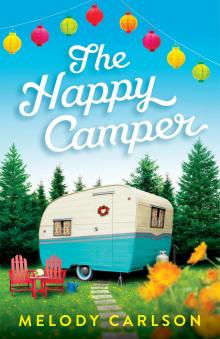 The Happy Camper
The Happy Camper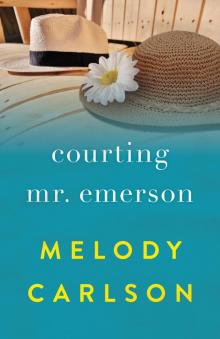 Courting Mr. Emerson
Courting Mr. Emerson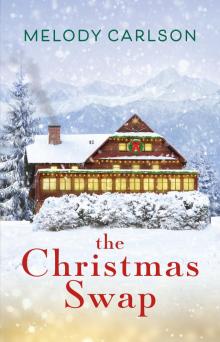 The Christmas Swap
The Christmas Swap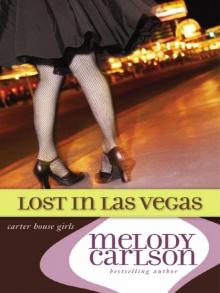 Lost in Las Vegas
Lost in Las Vegas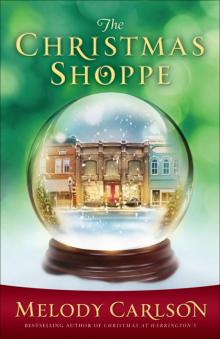 The Christmas Shoppe
The Christmas Shoppe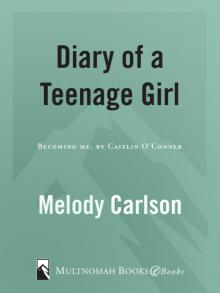 Becoming Me
Becoming Me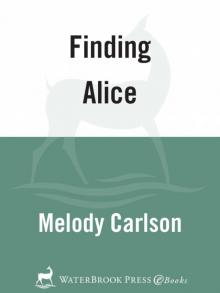 Finding Alice
Finding Alice Payback
Payback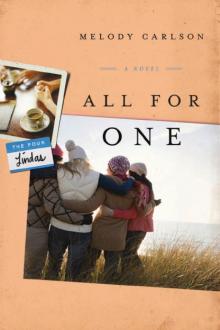 All for One
All for One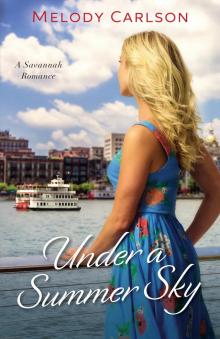 Under a Summer Sky--A Savannah Romance
Under a Summer Sky--A Savannah Romance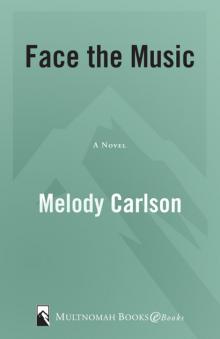 Face the Music
Face the Music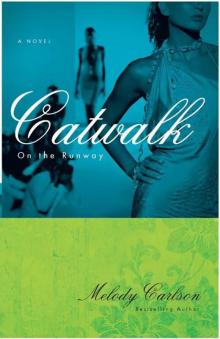 Catwalk
Catwalk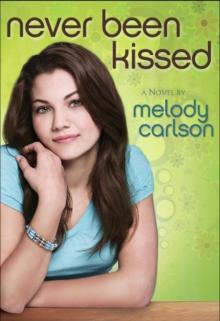 Never Been Kissed
Never Been Kissed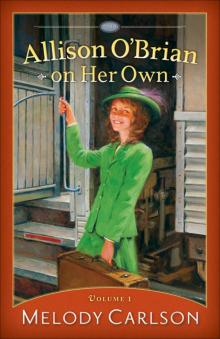 Allison O'Brian on Her Own
Allison O'Brian on Her Own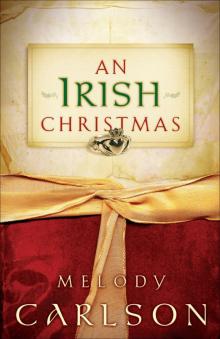 An Irish Christmas
An Irish Christmas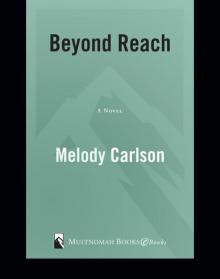 Beyond Reach
Beyond Reach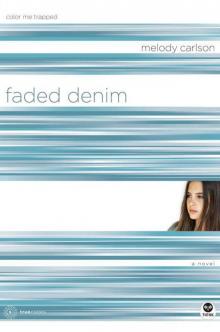 Faded Denim: Color Me Trapped
Faded Denim: Color Me Trapped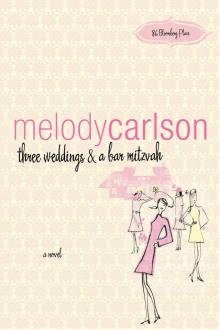 Three Weddings and a Bar Mitzvah
Three Weddings and a Bar Mitzvah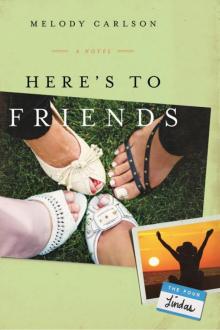 Here's to Friends
Here's to Friends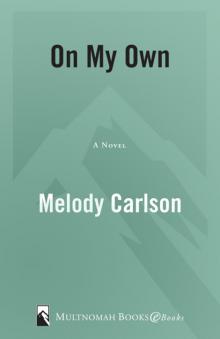 On My Own
On My Own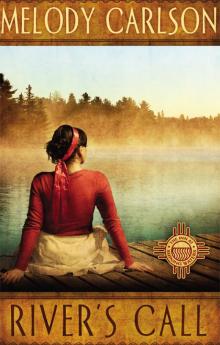 River's Call
River's Call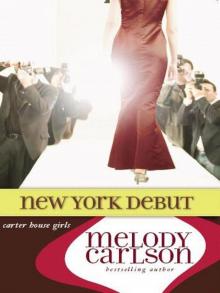 New York Debut
New York Debut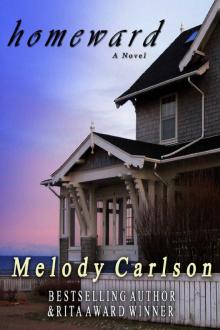 Homeward
Homeward Love Finds You in Sisters, Oregon
Love Finds You in Sisters, Oregon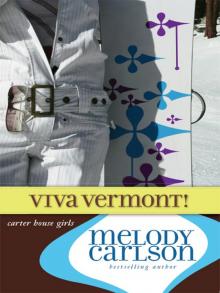 Viva Vermont!
Viva Vermont!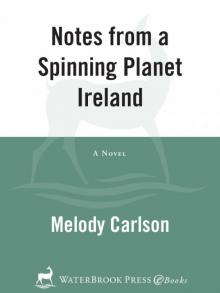 Notes from a Spinning Planet—Ireland
Notes from a Spinning Planet—Ireland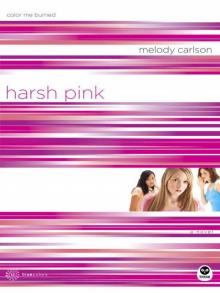 Harsh Pink with Bonus Content
Harsh Pink with Bonus Content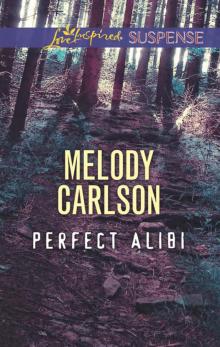 Perfect Alibi
Perfect Alibi The Christmas Pony
The Christmas Pony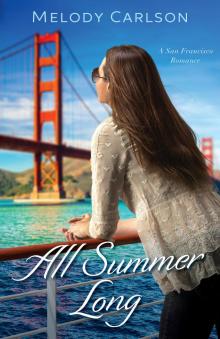 All Summer Long
All Summer Long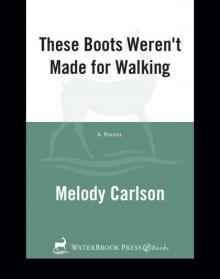 These Boots Weren't Made for Walking
These Boots Weren't Made for Walking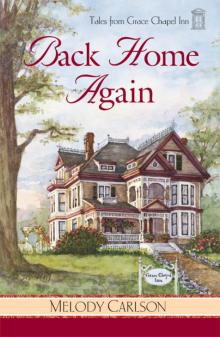 Back Home Again
Back Home Again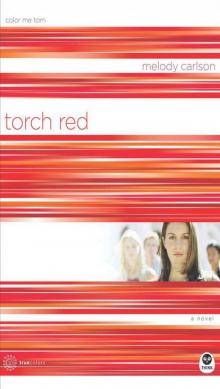 Torch Red: Color Me Torn with Bonus Content
Torch Red: Color Me Torn with Bonus Content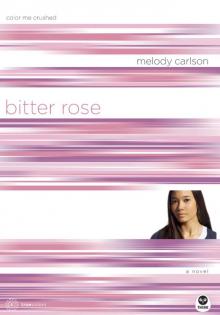 Bitter Rose
Bitter Rose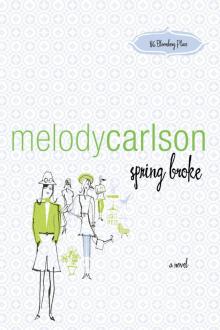 Spring Broke
Spring Broke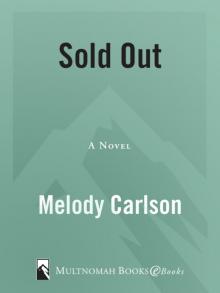 Sold Out
Sold Out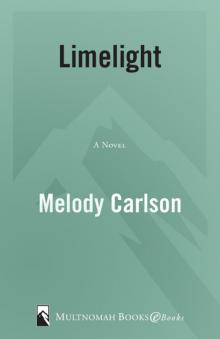 LimeLight
LimeLight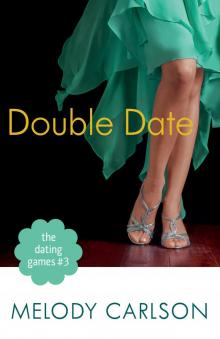 Double Date
Double Date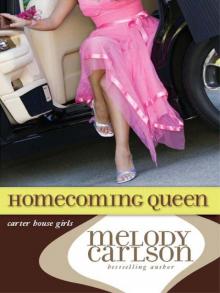 Homecoming Queen
Homecoming Queen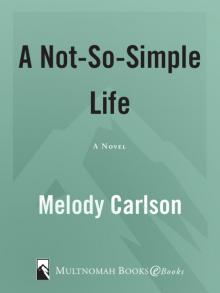 A Not-So-Simple Life
A Not-So-Simple Life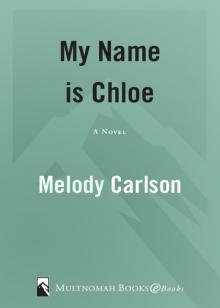 My Name Is Chloe
My Name Is Chloe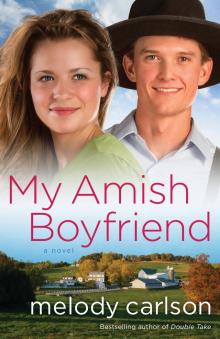 My Amish Boyfriend
My Amish Boyfriend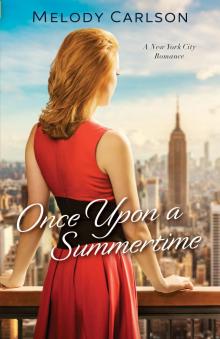 Once Upon a Summertime
Once Upon a Summertime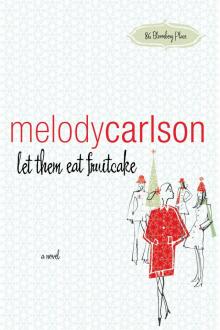 Let Them Eat Fruitcake
Let Them Eat Fruitcake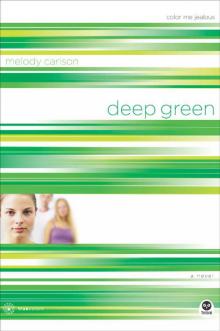 Deep Green: Color Me Jealous with Bonus Content
Deep Green: Color Me Jealous with Bonus Content The Joy of Christmas
The Joy of Christmas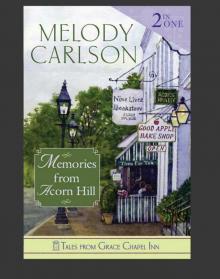 Memories from Acorn Hill
Memories from Acorn Hill Premiere
Premiere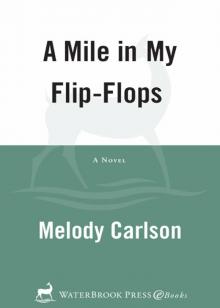 A Mile in My Flip-Flops
A Mile in My Flip-Flops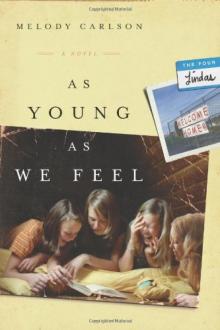 As Young As We Feel
As Young As We Feel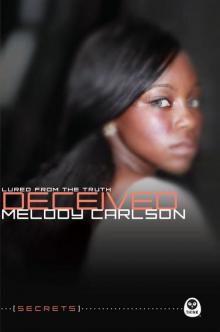 Deceived: Lured from the Truth (Secrets)
Deceived: Lured from the Truth (Secrets)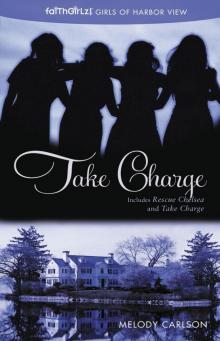 Take Charge
Take Charge Road Trip
Road Trip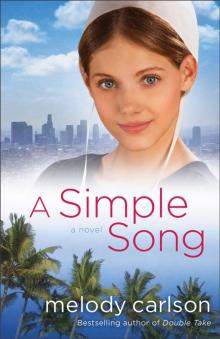 A Simple Song
A Simple Song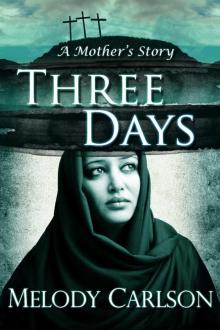 Three Days: A Mother's Story
Three Days: A Mother's Story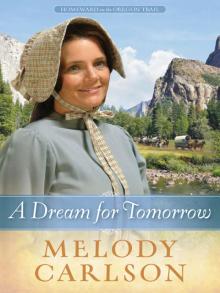 A Dream for Tomorrow
A Dream for Tomorrow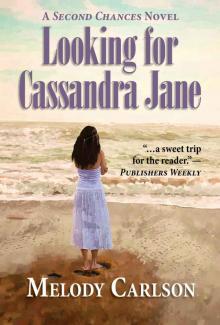 Looking for Cassandra Jane (The Second Chances Novels)
Looking for Cassandra Jane (The Second Chances Novels)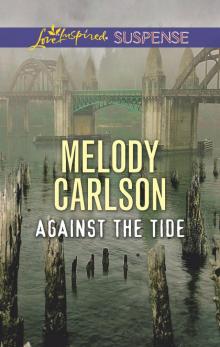 Against the Tide
Against the Tide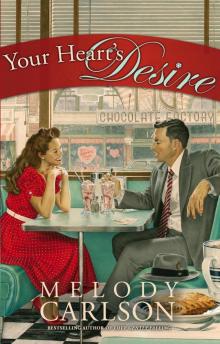 Your Heart's Desire
Your Heart's Desire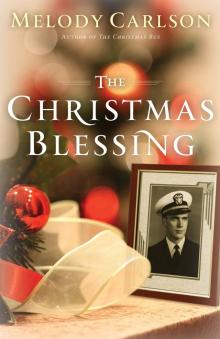 The Christmas Blessing
The Christmas Blessing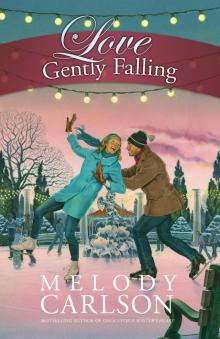 Love Gently Falling
Love Gently Falling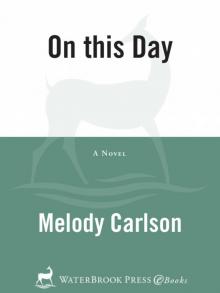 On This Day
On This Day The Christmas Joy Ride
The Christmas Joy Ride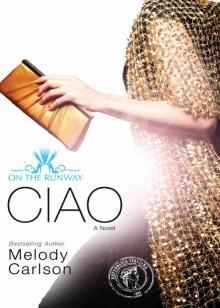 Ciao
Ciao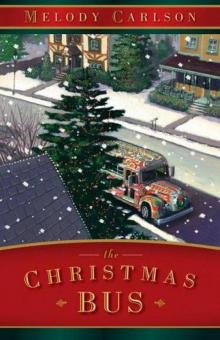 The Christmas Bus
The Christmas Bus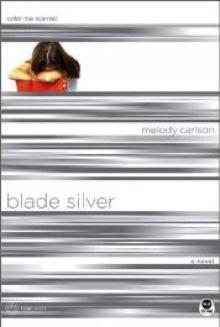 Blade Silver: Color Me Scarred
Blade Silver: Color Me Scarred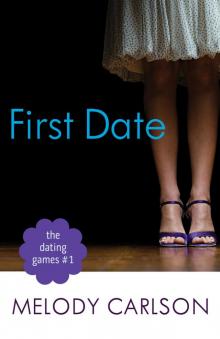 Dating Games #1
Dating Games #1 Double Take
Double Take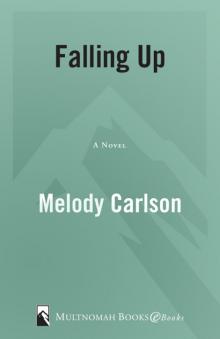 Falling Up
Falling Up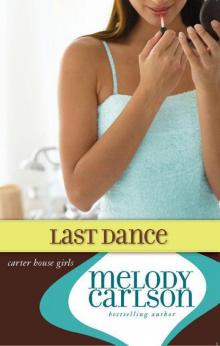 Last Dance
Last Dance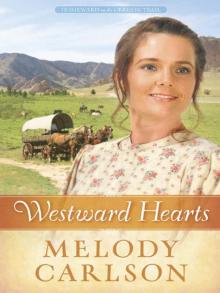 Westward Hearts
Westward Hearts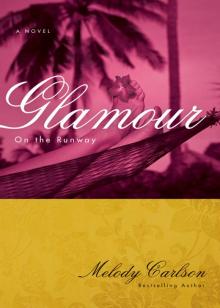 Glamour
Glamour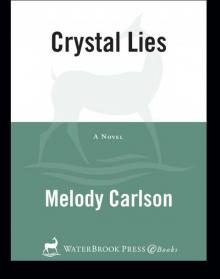 Crystal Lies
Crystal Lies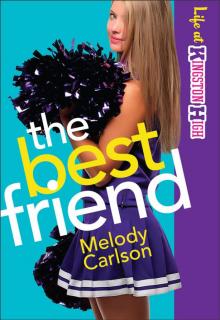 The Best Friend
The Best Friend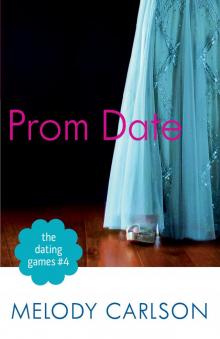 Prom Date
Prom Date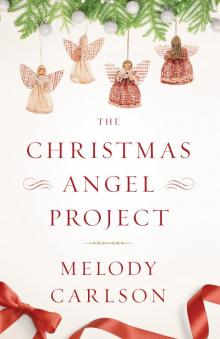 The Christmas Angel Project
The Christmas Angel Project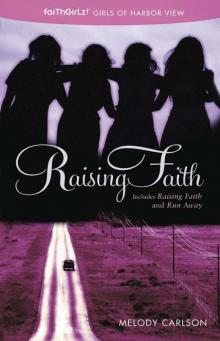 Raising Faith
Raising Faith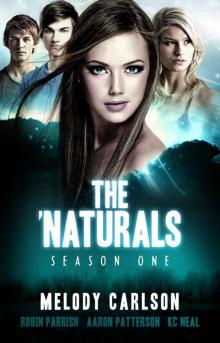 The 'Naturals: Awakening (Episodes 1-4 -- Season 1) (The 'Naturals: Awakening Season One Boxset)
The 'Naturals: Awakening (Episodes 1-4 -- Season 1) (The 'Naturals: Awakening Season One Boxset)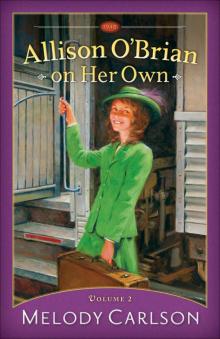 Allison O'Brian on Her Own, Volume 2
Allison O'Brian on Her Own, Volume 2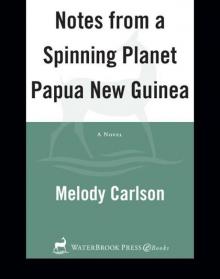 Notes from a Spinning Planet—Papua New Guinea
Notes from a Spinning Planet—Papua New Guinea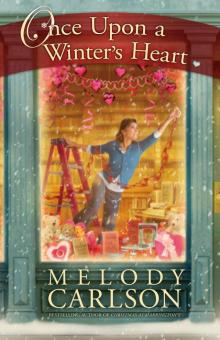 Once Upon a Winter's Heart
Once Upon a Winter's Heart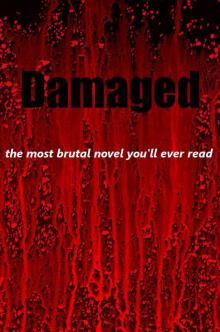 Damaged
Damaged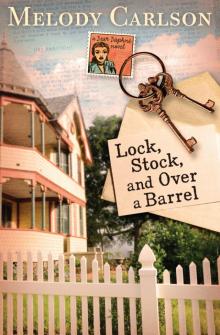 Lock, Stock, and Over a Barrel
Lock, Stock, and Over a Barrel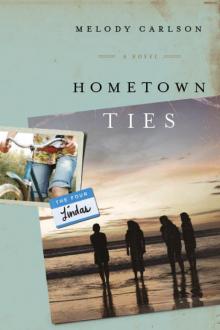 Hometown Ties
Hometown Ties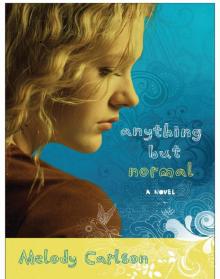 Anything but Normal
Anything but Normal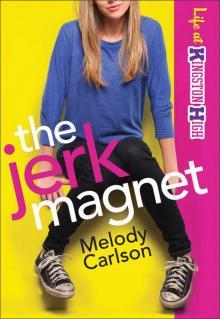 Jerk Magnet, The (Life at Kingston High Book #1)
Jerk Magnet, The (Life at Kingston High Book #1)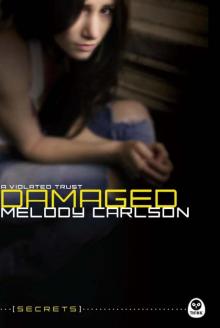 Damaged: A Violated Trust (Secrets)
Damaged: A Violated Trust (Secrets) Fool's Gold
Fool's Gold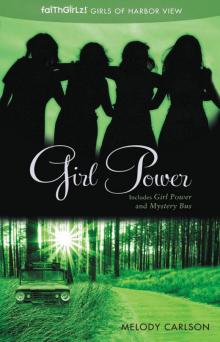 Girl Power
Girl Power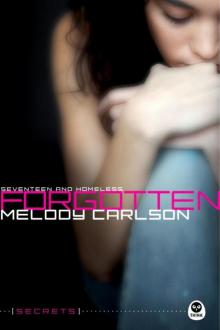 Forgotten: Seventeen and Homeless
Forgotten: Seventeen and Homeless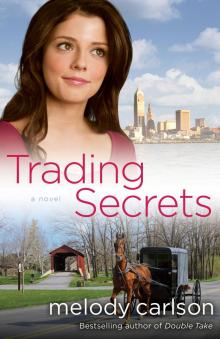 Trading Secrets
Trading Secrets Blood Sisters
Blood Sisters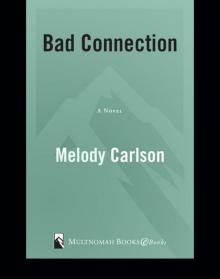 Bad Connection
Bad Connection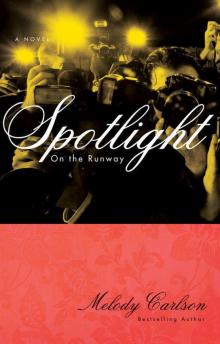 Spotlight
Spotlight A Simple Christmas Wish
A Simple Christmas Wish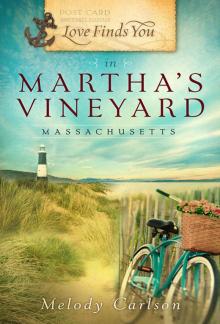 Love Finds You in Martha's Vineyard
Love Finds You in Martha's Vineyard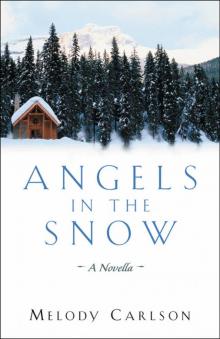 Angels in the Snow
Angels in the Snow A Christmas by the Sea
A Christmas by the Sea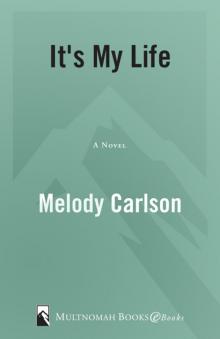 It's My Life
It's My Life Mixed Bags
Mixed Bags The Christmas Dog
The Christmas Dog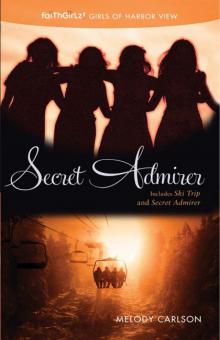 Secret Admirer
Secret Admirer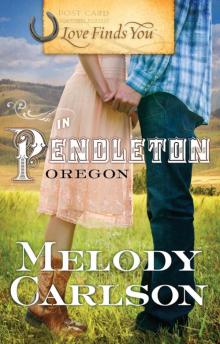 Love Finds You in Pendleton, Oregon
Love Finds You in Pendleton, Oregon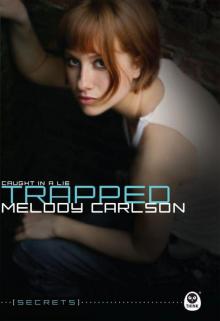 Trapped: Caught in a Lie (Secrets)
Trapped: Caught in a Lie (Secrets)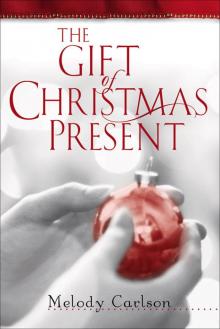 The Gift of Christmas Present
The Gift of Christmas Present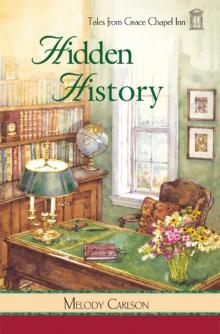 Hidden History
Hidden History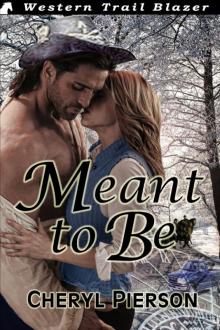 Meant to Be
Meant to Be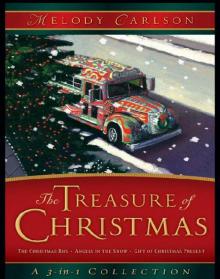 The Treasure of Christmas
The Treasure of Christmas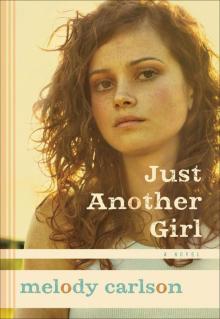 Just Another Girl
Just Another Girl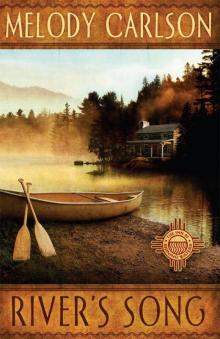 River's Song - The Inn at Shining Waters Series
River's Song - The Inn at Shining Waters Series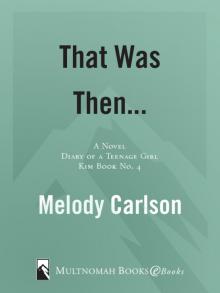 That Was Then...
That Was Then...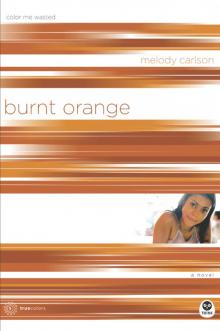 Burnt Orange
Burnt Orange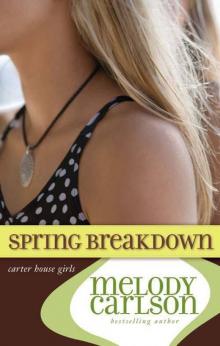 Spring Breakdown
Spring Breakdown The Christmas Cat
The Christmas Cat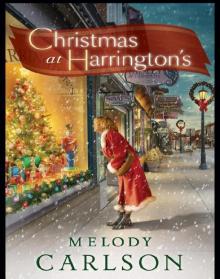 Christmas at Harrington's
Christmas at Harrington's